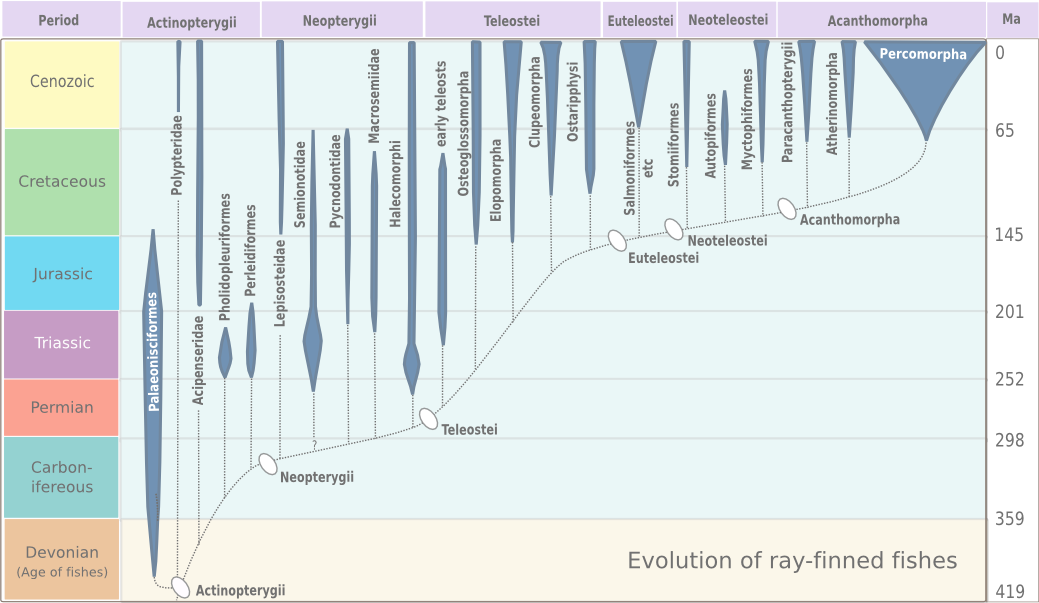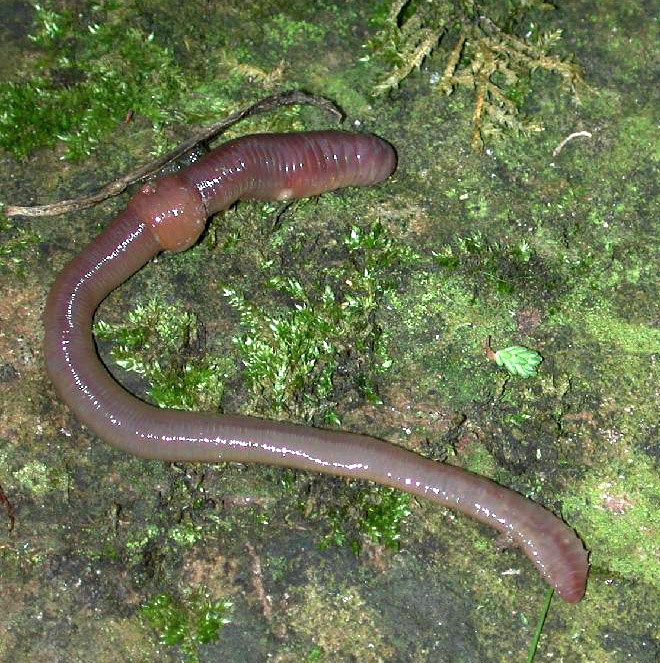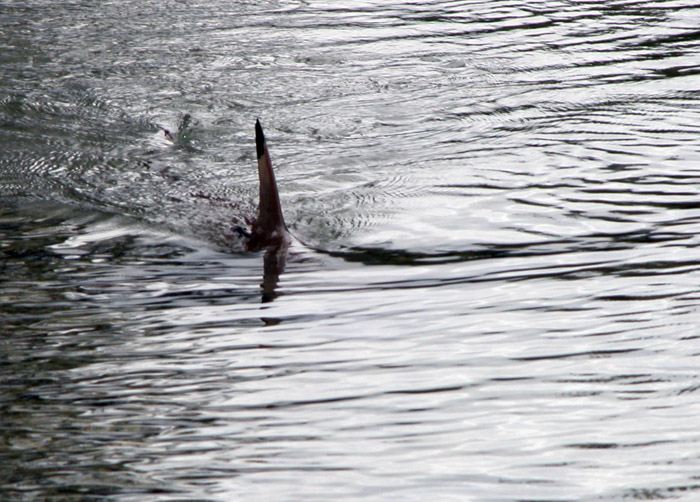|
Pikeblenny
The blennioid family Chaenopsidae includes the pike-blennies, tube-blennies, and flagblennies, all percomorph marine fish in the order Blenniiformes. The family is strictly tropical, ranging from North to South America. Members are also present in waters off Japan, Taiwan and Korea. Fourteen genera and 90 species are represented, the largest being the sarcastic fringehead, ''Neoclinus blanchardi'', at in length; most are much smaller, and the group includes perhaps the smallest of all vertebrates, ''Acanthemblemaria paula'', measuring just long as an adult. With highly compressed bodies, some may be so elongated as to appear eel-like; chaenopsids are scaleless and lack lateral lines. Their heads are rough and may be armed with spines. There may be 17 to 28 spines in the dorsal fin, with two in the anal fin. The habit of taking up home in abandoned worm tubes has earned some species in this family the name "tube-blenny". Many will also inhabit empty clam shells, which also ser ... [...More Info...] [...Related Items...] OR: [Wikipedia] [Google] [Baidu] |
Emblemaria Atlantica
''Emblemaria atlantica'', the Banner blenny, is a species of chaenopsid blenny found in coral reefs in the western Atlantic ocean. It can reach a maximum length of TL. References * Jordan, D. S. and B. W. Evermann 1898 (26 Nov.) ''The fishes of North and Middle America: a descriptive catalogue of the species of fish-like vertebrates found in the waters of North America north of the Isthmus of Panama. Part III.'' Bulletin of the United States National Museum No. 47: i-xxiv + 2183a-3136. atlantica Atlantica ( gr, Ατλαντικα; ''Atlantika'') is an ancient continent that formed during the Proterozoic about (two billion years ago, Ga) from various 2 Ga cratons located in what are now West Africa and eastern South America. The name, ... Fish described in 1898 {{Chaenopsidae-stub ... [...More Info...] [...Related Items...] OR: [Wikipedia] [Google] [Baidu] |
Percomorpha
Percomorpha () is a large clade of ray-finned fish that includes the tuna, seahorses, gobies, cichlids, flatfish, wrasse, perches, anglerfish, and pufferfish. Evolution Percomorpha are the most diverse group of teleost fish today. Teleosts, and percomorphs in particular, thrived during the Cenozoic era. Fossil evidence shows that there was a major increase in size and abundance of teleosts immediately after the mass extinction event at the Cretaceous-Paleogene boundary ca. 65 Ma ago. Phylogeny External relationships The two cladograms below are based on Betancur-R ''et al.'', 2017. Percomorphs are a clade of teleost fishes. The first cladogram shows the interrelationships of percomorphs with other living groups of teleosts. Internal relationships The following cladogram shows the evolutionary relationships of the various groups of extant Extant is the opposite of the word extinct. It may refer to: * Extant hereditary titles * Extant literature, surviving literature, ... [...More Info...] [...Related Items...] OR: [Wikipedia] [Google] [Baidu] |
Worm
Worms are many different distantly related bilateral animals that typically have a long cylindrical tube-like body, no limbs, and no eyes (though not always). Worms vary in size from microscopic to over in length for marine polychaete worms (bristle worms); for the African giant earthworm, ''Microchaetus rappi''; and for the marine nemertean worm (bootlace worm), ''Lineus longissimus''. Various types of worm occupy a small variety of parasitic niches, living inside the bodies of other animals. Free-living worm species do not live on land but instead live in marine or freshwater environments or underground by burrowing. In biology, "worm" refers to an obsolete taxon, ''vermes'', used by Carolus Linnaeus and Jean-Baptiste Lamarck for all non-arthropod invertebrate animals, now seen to be paraphyletic. The name stems from the Old English word ''wyrm''. Most animals called "worms" are invertebrates, but the term is also used for the amphibian caecilians and the slowworm '' A ... [...More Info...] [...Related Items...] OR: [Wikipedia] [Google] [Baidu] |
Anal Fin
Fins are distinctive anatomical features composed of bony spines or rays protruding from the body of a fish. They are covered with skin and joined together either in a webbed fashion, as seen in most bony fish, or similar to a flipper, as seen in sharks. Apart from the tail or caudal fin, fish fins have no direct connection with the spine and are supported only by muscles. Their principal function is to help the fish swim. Fins located in different places on the fish serve different purposes such as moving forward, turning, keeping an upright position or stopping. Most fish use fins when swimming, flying fish use pectoral fins for gliding, and frogfish use them for crawling. Fins can also be used for other purposes; male sharks and mosquitofish use a modified fin to deliver sperm, thresher sharks use their caudal fin to stun prey, reef stonefish have spines in their dorsal fins that inject venom, anglerfish use the first spine of their dorsal fin like a fishing rod to lu ... [...More Info...] [...Related Items...] OR: [Wikipedia] [Google] [Baidu] |
Dorsal Fin
A dorsal fin is a fin located on the back of most marine and freshwater vertebrates within various taxa of the animal kingdom. Many species of animals possessing dorsal fins are not particularly closely related to each other, though through convergent evolution they have independently evolved external superficial fish-like body plans adapted to their marine environments, including most numerously fish, but also mammals such as cetaceans (whales, dolphins, and porpoises), and even extinct ancient marine reptiles such as various known species of ichthyosaurs. Most species have only one dorsal fin, but some have two or three. Wildlife biologists often use the distinctive nicks and wear patterns which develop on the dorsal fins of large cetaceans to identify individuals in the field. The bony or cartilaginous bones that support the base of the dorsal fin in fish are called ''pterygiophores''. Functions The main purpose of the dorsal fin is to stabilize the animal against rollin ... [...More Info...] [...Related Items...] OR: [Wikipedia] [Google] [Baidu] |
Lateral Line
The lateral line, also called the lateral line organ (LLO), is a system of sensory organs found in fish, used to detect movement, vibration, and pressure gradients in the surrounding water. The sensory ability is achieved via modified epithelial cells, known as hair cells, which respond to displacement caused by motion and transduce these signals into electrical impulses via excitatory synapses. Lateral lines serve an important role in schooling behavior, predation, and orientation. Fish can use their lateral line system to follow the vortices produced by fleeing prey. Lateral lines are usually visible as faint lines of pores running lengthwise down each side, from the vicinity of the gill covers to the base of the tail. In some species, the receptive organs of the lateral line have been modified to function as electroreceptors, which are organs used to detect electrical impulses, and as such, these systems remain closely linked. Most amphibian larvae and some fully aquatic adult ... [...More Info...] [...Related Items...] OR: [Wikipedia] [Google] [Baidu] |
Acanthemblemaria Paula
The dwarf spinyhead blenny (''Acanthemblemaria paula'') is a species of chaenopsid blenny found in coral reefs around Belize, in the western central Atlantic The Atlantic Ocean is the second-largest of the world's five oceans, with an area of about . It covers approximately 20% of Earth's surface and about 29% of its water surface area. It is known to separate the " Old World" of Africa, Europe an ... ocean. It can reach a maximum length of SL. References paula Vertebrates of Belize dwarf spinyhead blenny {{Chaenopsidae-stub ... [...More Info...] [...Related Items...] OR: [Wikipedia] [Google] [Baidu] |
Sarcastic Fringehead
The sarcastic fringehead (''Neoclinus blanchardi'') is a small but very hardy saltwater fish that has a large mouth and aggressive territorial behavior, for which it has been given its common name. When two fringeheads have a territorial battle, they wrestle by pressing their distended mouths against each other, as if they were kissing. This allows them to determine which is the larger fish, which establishes dominance. They can be up to long, elegant and slender, and are mostly scaleless with great pectoral fins and reduced pelvic fins. The swimming movements of these fish are complicated. Their swimming consists of short, fast, dart-like movements. They are generally brown in color. Sarcastic fringeheads are a species of tube blenny and tend to hide inside shells or crevices, though some have been found living in man-made objects, such as a soda can. After the female spawns under a rock or in clam burrows, the male guards the eggs. During squid spawning season, they eat lar ... [...More Info...] [...Related Items...] OR: [Wikipedia] [Google] [Baidu] |
Korea
Korea ( ko, 한국, or , ) is a peninsular region in East Asia. Since 1945, it has been divided at or near the 38th parallel, with North Korea (Democratic People's Republic of Korea) comprising its northern half and South Korea (Republic of Korea) comprising its southern half. Korea consists of the Korean Peninsula, Jeju Island, and several minor islands near the peninsula. The peninsula is bordered by China to the northwest and Russia to the northeast. It is separated from Japan to the east by the Korea Strait and the Sea of Japan (East Sea). During the first half of the 1st millennium, Korea was divided between three states, Goguryeo, Baekje, and Silla, together known as the Three Kingdoms of Korea. In the second half of the 1st millennium, Silla defeated and conquered Baekje and Goguryeo, leading to the "Unified Silla" period. Meanwhile, Balhae formed in the north, superseding former Goguryeo. Unified Silla eventually collapsed into three separate states due to ... [...More Info...] [...Related Items...] OR: [Wikipedia] [Google] [Baidu] |
Taiwan
Taiwan, officially the Republic of China (ROC), is a country in East Asia, at the junction of the East and South China Seas in the northwestern Pacific Ocean, with the People's Republic of China (PRC) to the northwest, Japan to the northeast, and the Philippines to the south. The territories controlled by the ROC consist of 168 islands, with a combined area of . The main island of Taiwan, also known as ''Formosa'', has an area of , with mountain ranges dominating the eastern two-thirds and plains in the western third, where its highly urbanised population is concentrated. The capital, Taipei, forms along with New Taipei City and Keelung the largest metropolitan area of Taiwan. Other major cities include Taoyuan, Taichung, Tainan, and Kaohsiung. With around 23.9 million inhabitants, Taiwan is among the most densely populated countries in the world. Taiwan has been settled for at least 25,000 years. Ancestors of Taiwanese indigenous peoples settled the isla ... [...More Info...] [...Related Items...] OR: [Wikipedia] [Google] [Baidu] |
Japan
Japan ( ja, 日本, or , and formally , ''Nihonkoku'') is an island country in East Asia. It is situated in the northwest Pacific Ocean, and is bordered on the west by the Sea of Japan, while extending from the Sea of Okhotsk in the north toward the East China Sea, Philippine Sea, and Taiwan in the south. Japan is a part of the Ring of Fire, and spans Japanese archipelago, an archipelago of List of islands of Japan, 6852 islands covering ; the five main islands are Hokkaido, Honshu (the "mainland"), Shikoku, Kyushu, and Okinawa Island, Okinawa. Tokyo is the Capital of Japan, nation's capital and largest city, followed by Yokohama, Osaka, Nagoya, Sapporo, Fukuoka, Kobe, and Kyoto. Japan is the List of countries and dependencies by population, eleventh most populous country in the world, as well as one of the List of countries and dependencies by population density, most densely populated and Urbanization by country, urbanized. About three-fourths of Geography of Japan, the c ... [...More Info...] [...Related Items...] OR: [Wikipedia] [Google] [Baidu] |
South America
South America is a continent entirely in the Western Hemisphere and mostly in the Southern Hemisphere, with a relatively small portion in the Northern Hemisphere at the northern tip of the continent. It can also be described as the southern subregion of a single continent called America. South America is bordered on the west by the Pacific Ocean and on the north and east by the Atlantic Ocean; North America and the Caribbean Sea lie to the northwest. The continent generally includes twelve sovereign states: Argentina, Bolivia, Brazil, Chile, Colombia, Ecuador, Guyana, Paraguay, Peru, Suriname, Uruguay, and Venezuela; two dependent territories: the Falkland Islands and South Georgia and the South Sandwich Islands; and one internal territory: French Guiana. In addition, the ABC islands of the Kingdom of the Netherlands, Ascension Island (dependency of Saint Helena, Ascension and Tristan da Cunha, a British Overseas Territory), Bouvet Island ( dependency of Norway), Pa ... [...More Info...] [...Related Items...] OR: [Wikipedia] [Google] [Baidu] |


.png)

